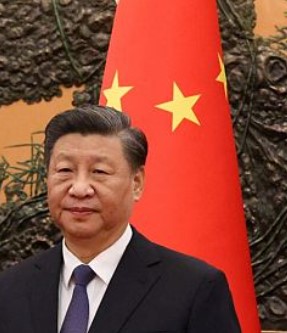
STRATEGIC ASSESSMENT. Saudi and Chinese officials are planning a summit meeting in the Kingdom of Saudi Arabia for China’s President Xi Jinping, to take place before the end of 2022. The visit, tentatively set for the second week of December, has been long under discussion but has not taken place until now. Framing the purpose of the trip in broad terms, Chinese Foreign Minister Wang Yi said in late October that Beijing “attaches great importance to the development of China-Saudi relations, and places Saudi Arabia as a priority in China’s overall diplomatic policy.” Yet, Xi’s trip is widely seen as a response to U.S. President Joseph Biden’s visit to the Kingdom in July. The trip did not meaningfully improve U.S.-Saudi relations, which have deteriorated largely due to U.S. official concerns about the role of MBS in the 2018 killing of Saudi dissident Jamal Khashoggi. U.S.-Saudi relations have declined further since the Biden trip, particularly over the U.S. official view that MBS violated an understanding to delay a reduction in oil production by OPEC and non-OPEC exporters. In planning a visit to the Kingdom, Xi is undoubtedly hoping to exploit and widen the U.S.-Saudi strains to enhance China’s position in the Middle East and advertise its rise as a global power. Xi might also be seeking to outflank the regional influence of Russia, as Russia’s reputation and image in the region have declined significantly because of its illegal invasion of Ukraine and the Russian military’s poor performance in that war. China is an authoritarian state and Xi – recently reelected to an unprecedented third term as president – does not face the domestic opposition to engaging with MBS that prevails in the United States. Moreover, Xi is unlikely to face criticism from Saudi leaders of its treatment of its Uighur community, who are Muslims.
The trip is expected at a time when China has been broadening its relations with the Kingdom on strategic issues, expanding a relationship that has heretofore focused almost exclusively on trade, economics, investment, and energy. In December 2021, press reports quoted U.S. intelligence agencies as assessing that Saudi Arabia is now actively manufacturing its own ballistic missiles with the help of China. The United States is the Kingdom’s largest arms supplier and its primary security partner, but U.S. laws restricting the sale of controlled missile technology to the Kingdom largely prevent U.S. sales of ballistic missiles or missile development technology to the Saudis. Prior to the 2021 reports, China had provided the Kingdom with finished missiles but not the technology for Saudi Arabia to produce missiles indigenously.
Unlike Russia, China is a large consumer of crude oil, and energy issues are certain to constitute a central focus of Xi’s trip. To that extent, Xi’s appeals, while in the Kingdom, to push for increases in OPEC and non-OPEC oil production align with the position of the United States. Press reports indicate that Xi might, in the coming months, pivot from the “dynamic Zero Covid” policy that has suppressed China’s economic growth and reduced its oil consumption. Xi is probably seeking to convince MBS and other Saudi leaders that China’s return to more robust growth will likely cause an escalation in global oil prices and that major oil exporters need to elevate production to keep prices stable. In addition, China is the largest oil customer of Iran, a Saudi adversary, buying approximately 600,000 barrels per day, even though such purchases have triggered U.S. sanctions on Chinese oil traders and other companies. Yet, China has also become a large customer of Saudi oil, buying nearly one-quarter of Saudi crude oil exports. U.S. officials hope that Saudi leaders could replace some of China’s oil imports from Iran with Saudi imports. But Saudi spare capacity is limited – approximately 1 million barrels per day, which is below the 2 million barrels per day that the Kingdom generally tries to maintain – and it is possible that Saudi Arabia might not be able to supply more of its oil to China. Global supplies remain tight, particularly as the European Union’s ban on Russian crude exports begins in early December.
For his part, MBS will undoubtedly try to use the Xi visit to signal to Washington that Saudi Arabia is expanding its relations with other big powers and reducing its dependence on the United States. However, it remains unclear whether Washington is overly concerned about Xi’s visit to the Kingdom, especially core U.S. national security interests. Despite the strains between U.S. leaders and MBS, the Kingdom has few viable options to replace the United States as its main security partner and protector. Despite U.S. official criticism of MBS, the United States has continued to work with Saudi Arabia to counter missile, drone, and other threats from Iran, and to provide the Kingdom with large amounts of weaponry. No U.S. programs to advise and assist Saudi forces have been interrupted. Still, MBS will consider the Xi visit as another snub to leaders in Washington that he believes have tried to embarrass and isolate him when possible (TSC).





